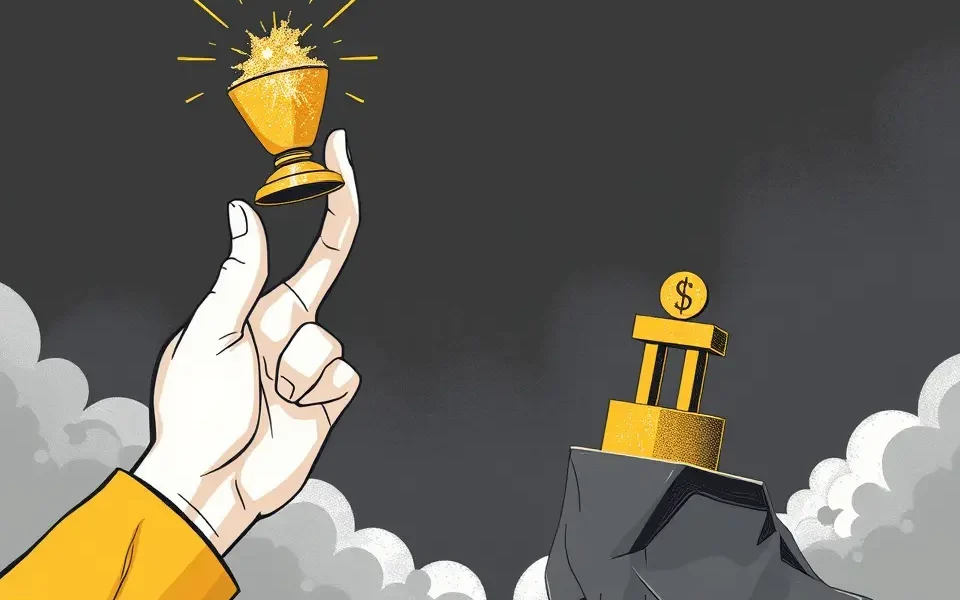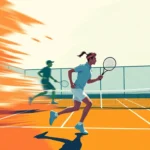The allure of a fast payday can be strong, especially for rising stars in the high-stakes world of professional tennis. But is chasing short-term financial gains worth jeopardizing long-term success and the chance at true greatness? Recent comments from tennis analyst Jim Courier suggest that some players, including the promising trio of Casper Ruud, Lorenzo Musetti, and Holger Rune, might be tempted by “easy grabs” that could ultimately derail their ambitions.
The Temptation of Appearance Fees
Courier’s warning comes amidst a trend of top players, including Novak Djokovic and Jannik Sinner, participating in tournaments the week before the French Open. These events, particularly the ATP 500 level Hamburg Open and the ATP 250 level Geneva Open, offer lucrative appearance fees, guaranteeing players a significant sum of money simply for showing up. This can be particularly enticing for younger players still establishing themselves and building their financial security.
“I’m really shocked honestly to see some of these names on here,” Courier said, referring to the high-profile players competing in the week before Roland Garros. He explained that these tournaments can pay hefty appearance fees, “hundreds and thousands of dollars just to show up to play, and they don’t have to win a match to get that money, so there is some commercial aspect to this”.
The Risk of Sacrificing Grand Slam Glory
While the immediate financial reward of appearance fees is undeniable, Courier cautions that prioritizing these “easy grabs” could come at the cost of long-term success. He points out that historically, players who have gone on to win the French Open typically avoid playing tournaments in the week leading up to the Grand Slam. The reasoning is simple: Grand Slams demand peak physical and mental condition, and an extra tournament can lead to fatigue, injury, and a lack of focus.
Courier emphasized the importance of prioritizing Grand Slam victories over short-term financial gains: “There’s no amount of appearance money or bonus pool money that can replicate the kind of money you make if you win Roland Garros. So be careful what you wish for if you’re going for the easy grab, you might miss out on a life-changing, generational wealth that sits at the end of these tournaments (Grand Slams)”.
Case Study: Djokovic’s Geneva Gamble
Novak Djokovic’s participation in the Geneva Open serves as a recent example of the potential risks and rewards of playing the week before a Grand Slam. In 2024, Djokovic used the Geneva Open as a platform to prepare for the French Open, reaching the semi-finals. However, his deep run in Paris was cut short by a knee injury sustained during a hard-fought win in the fourth round. This ultimately forced him to withdraw from the tournament before his quarterfinal match.
While Djokovic’s motivation for playing Geneva was likely to gain match sharpness and confidence, the injury he sustained highlights the physical toll that additional tournaments can take, especially on older players. It also underscores the delicate balance between preparation and overexertion in the lead-up to a major championship.
The Allure and the Pitfalls for Ruud, Musetti, and Rune
So, what does this mean for players like Casper Ruud, Lorenzo Musetti, and Holger Rune? All three are incredibly talented and have the potential to make deep runs in Grand Slams. Ruud has already reached three Grand Slam finals, including the French Open in 2022 and the US Open in the same year. Rune has shown flashes of brilliance and is considered one of the most promising young players on the tour. Musetti, with his elegant game style, has the potential to be a threat on any surface.
However, these players are also at a stage in their careers where financial stability and building their brand are important considerations. The temptation to accept appearance fees and play in smaller tournaments is understandable. The key is to strike a balance between financial security and prioritizing the long-term goals of Grand Slam success and establishing themselves as top players.
Here’s a closer look at the factors each player might be considering:
Casper Ruud: Ruud has already achieved a significant level of success, reaching multiple Grand Slam finals. He may be less tempted by appearance fees than younger players still trying to establish themselves. However, he may also see value in playing extra tournaments to fine-tune his game and gain confidence.
Lorenzo Musetti: Musetti is an exciting young player with a lot of potential. He may be more inclined to play in tournaments that offer appearance fees to help build his financial base and gain exposure. He needs consistent results at the highest level to cement his status.
Holger Rune: Rune is known for his ambition and competitiveness. He may be less motivated by money than by the desire to win and prove himself against the best players in the world. However, he is also still young and developing, and the financial incentives of playing extra tournaments could be appealing.
Finding the Right Balance
Ultimately, the decision of whether to chase “easy grabs” or prioritize Grand Slam preparation is a personal one. There is no one-size-fits-all answer, and each player must weigh the potential risks and rewards based on their individual circumstances and goals.
However, Courier’s warning serves as a valuable reminder that short-term financial gains should not come at the expense of long-term success. Grand Slam titles are the ultimate measure of greatness in tennis, and the players who prioritize those goals are more likely to achieve lasting fame and fortune. The “easy grab” might seem appealing in the moment, but the true rewards lie in the hard work and dedication required to reach the pinnacle of the sport.








No Comment! Be the first one.